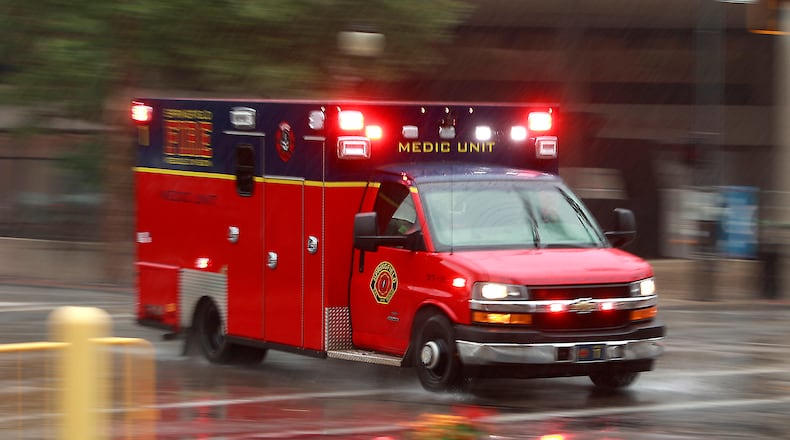“Incident responses have been increasing steadily over the past few decades, and it is almost totally being driven by EMS responses,” said Assistant Fire Chief Matt Smith.
An EMS call is a medical call to help someone who is sick or injured, and the division sends an ambulance to provide medical care to them. A non-EMS call includes things such as fires, false alarms, hazardous conditions and other requests.
Smith cited a wide range of factors for the increase in calls for service, including more widespread use of the 9-1-1 system; the opioid epidemic, which he said has tapered off here; and COVID-19.
“I think we’ve done a very good job at selling 9-1-1 to people. It’s out there and more people are calling for assistance,” he said. “I think people weren’t calling EMS as much before as they are now.”
During the first six months of 2023, the fire division responded to 9,170 total calls, compared to 8,875 total calls for the same time period in 2022, a 3.3% increase. The figures include about 200 more EMS calls this year so far vs. last.
Last year, the division averaged just over 49 calls per day.
To put into perspective the amount of calls increasing each year, Smith provided other statistics. From 1959 to 2022, the amount of total calls a year the division responded to increased by 14,695 calls, from 3,391 decades ago to 18,086 in 2022.
In 1959, the fire division responded to an average of 9.3 calls per day.
By 1996, Smith’s first year, the division responded to 11,512 total calls,which averaged 31.5 runs per day.
In 2022, the division averaged 49.55 runs per day.
“While there has been an increase in the numbers of non-EMS runs over the decades, the huge increase in runs has been EMS,” Smith said.
As late as the 1990s, the fire division still only classified calls as either “medic only” or “medic assist,” but they now try to analyze each call more carefully and specifically in terms of the medical condition and the resources needed.
“EMS (calls) have dramatically increased over those times ... We try to break the calls down, try to look at what the calls are and look at those things a lot more carefully, really analyzing them,” Smith said.
In the 1990s, Smith said they had three full-time medic units, but now there are 130 people in the division that also have to become a paramedic. He said about a third of the department is in various stages of paramedic training, and by the end of next year, a majority will have gone through the training.
“If you don’t obtain a medic card within three years and recertify every three years, you will lose your job ... Paramedic is an important aspect of our position,” he said.
Smith said the division provides the basic EMT training and the paramedic training through Clark State College, and has had many hires in the past two years, including 32 from the last two classes.
Although calls and runs have increased, the amount of staff has not, and building four fire stations will impact that as well, he said.
“Essentially as runs have gone up, we haven’t really dramatically increased our (staff) numbers,” Smith said. “Our runs continue to increase, and the workload increases on everybody.”
Credit: Bill Lackey
Credit: Bill Lackey
Smith said when the new station opens at the end of this year on South Limestone Street, the station on West Pleasant will close.
In 2024, the new stations at Zischler Street, Kenton Street and South Charleston Pike are scheduled to open, and the stations at Commerce, Ludlow and Lagonda will close. The stations at North Fountain and East Home will remain as is.
“These moves will impact the overall run volume but will allow us to respond more effectively across the city,” he said. “What will, and has, impacted the run volume is the city’s population increase in size and projected increase in population.”
Smith added the run volume has been impacted by the Bridgewater development on Tuttle Road and other developments on the east side.
About the Author


